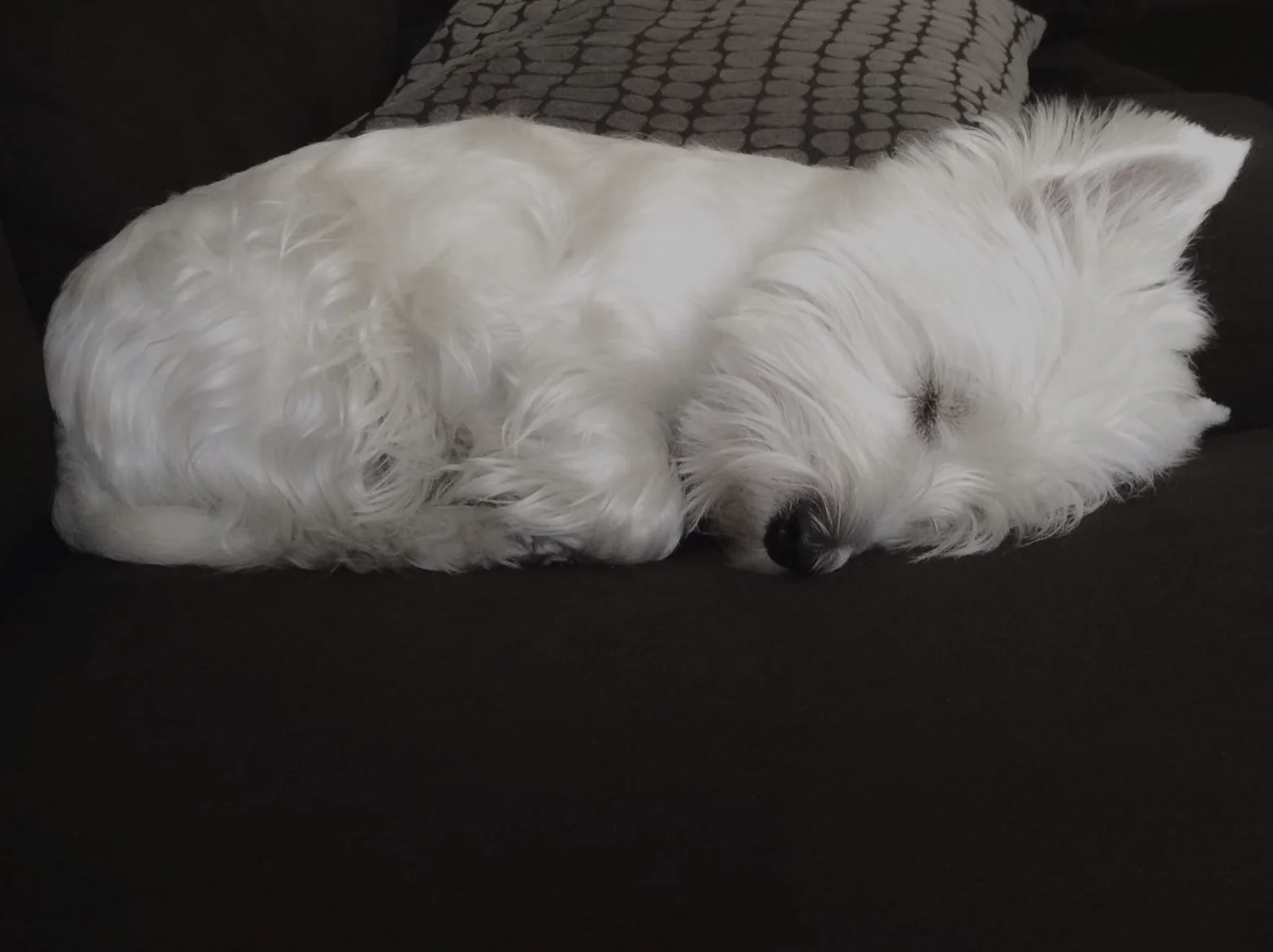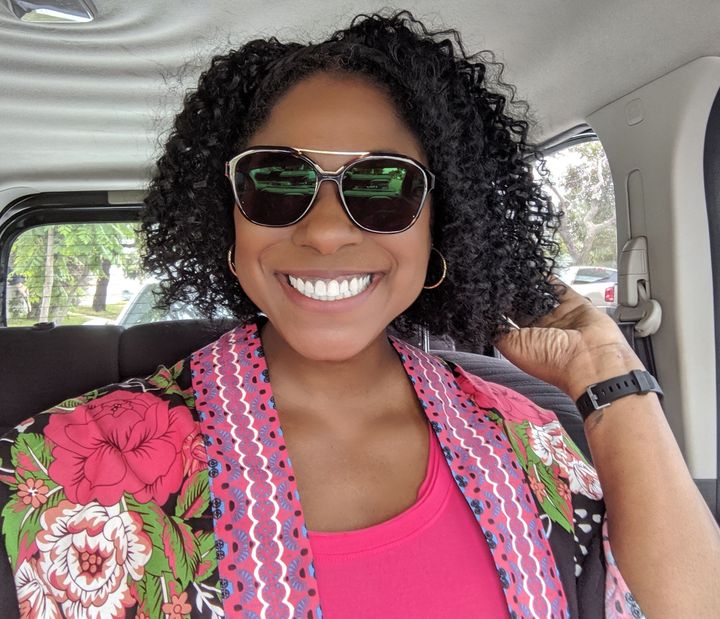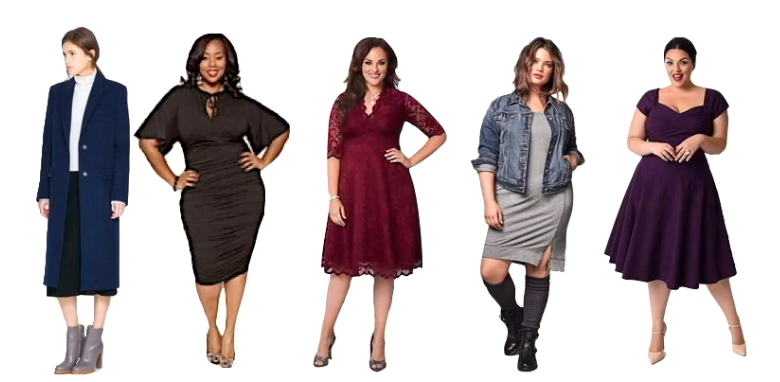Actors always believe there’s one booking out there that will magically transform their careers into a continual stream of job offers, fame and fortune. The reality is, of course, less magical. While one notable booking can open doors to more and better opportunities, true success is the result of repeated and consistent work that makes up the journey that is an acting career. Actor Nicole J. Butler writes about this very process in The Huffington Post. Her HuffPost Personal essay shows all of us how, after 22 years as a working Actor, she’s found pop culture ascendence and massive virality but knows that she still has to get out and work at it again tomorrow. The fact that she’s making her living doing what she loves is Nicole Butler’s big win. You can read Ms. Butler’s essay below (shared with her permission) and click on her photos to visit her website.
I’m The Star Of That ‘She Shed’ Commercial. Here’s How Going Viral Has Changed My Life - by Nicole J. Butler
At 4:37 p.m. on Jan. 30, 2018, I received an email notification from my agent regarding a State Farm commercial audition scheduled for the following afternoon.
I’m an actress in Los Angeles and this was a normal occurrence for me, so this particular email did not stick in my memory. But I can tell you that I most likely thought, Aw, man, I’ll be stuck in Santa Monica during rush hour! ― because that’s what I usually think when I have to audition in Santa Monica right before rush hour. But this is the career that I chose, so I stopped whining and set about preparing for the audition.
I put the time and location into my calendar, mentally chose appropriate clothing based on the character description, and then downloaded the audition script and began to read. That’s when I first saw the phrase that would change my life: “she shed.”
What the heck is a she shed? I wondered.
A quick internet search revealed that a “she shed” is the female equivalent of a “man cave,” only instead of being inside the house, it resides in the backyard.
Cool, I thought as I scrolled through Pinterest, nodding my approval at the array of brightly colored, creatively decorated sheds. Moments before, I hadn’t even known that she sheds were a thing and now, to my artsy eye, they’d become #goals.
The next day I went to the audition, did my thing and left. I felt like it went well but fixating on the outcome of an audition makes me a neurotic mess, so I put it out of my mind.
Six days later, my agent emailed to say that casting wanted to see me for a callback the following afternoon. Commercials usually have a turnaround of two or three days from first call to booking, so I was genuinely surprised to find out that I was still in play for the role of Cheryl.
This time I arrived at the audition to find several male actors seated in the waiting area ― potential husbands for Cheryl. I was paired with Reggie Currelley. After we introduced ourselves to one another, we went into the audition room to be judged by a host of decision-makers including the director, the casting associate and several people from the ad agency. This is what actors do.
I remember thinking that the director, Craig Gillespie of “I, Tonya” fame, was very clever and that the audition itself was a lot of fun. Reggie and I worked well off of one another, everyone in the room laughed at the moments in the script that were supposed to be funny, and I left feeling like I had done a good job. I wish I could tell you that it felt “magical,” but the truth is that it felt as solid as hundreds of other auditions for hundreds of other jobs that I didn’t end up booking.
But this one, I did book. I was going to be Cheryl with the burning she shed.
One day after the callback, I was told that the shoot would take place on Feb. 10 ― a rare Saturday shoot at Rose Bowl Stadium in Pasadena. I was happy to get the job in the first place, and knowing that I would be paid at a higher rate because it was on a weekend was a bonus! And though I’m not a sports fan, even I knew that shooting at the Rose Bowl was a score.
When I pulled up at the Rose Bowl that Saturday afternoon, the first thing I saw was a flaming shed on the lawn. It was the she shed, and it was very much on fire. After hair and makeup, Reggie and I were shuttled to a nearby house where we filmed in the backyard, across from a makeshift she shed consisting of a white tent with moving lights inside.
Reggie and I followed the script pretty closely, and Craig alternated between guiding the action and letting us improvise, all while keeping the atmosphere convivial. During a break, we watched a small but impressive display of Hollywood magic: An editor at his laptop superimposed video of the flaming shed at the stadium onto an image of the white tent standing about 15 feet away from us. The moving bulbs inside the tent had thrown a flickering light on our faces the way a real fire would have.
Reggie and I, along with the crew, worked until it got too dark to shoot anymore. I left tired and chilled, and my feet were a little achy, but inside I felt the contented glow that comes from putting in a good day’s work with good people doing something that you love. We tried so many different variations of the script that it was impossible to guess what the final product would look like but, luckily, we didn’t have to wait too long to find out. The State Farm she-shed commercial premiered on television about a month later.
Our commercial wasn’t the only one State Farm shot around that time ― there were several others. One had over 11,000 airings by the time the she-shed ad started to run. My hope was that the she-shed spot would be popular enough to air that much, but there was no way to tell how viewers would react to it.
I’m happy to report that as I write this, the she-shed commercial has aired on broadcast television well over 33,000 times and has racked up almost 1 million views on YouTube. A thousand of those views were probably family members, but it’s still safe to say that the ad has gone viral ... and so have I.
Before we go any further, I want you to understand that I’m not out at parties trying to see and be seen (not that there’s anything inherently wrong with that). I have never tried to “go viral.” I hone my craft, do my work, go home and mind my business.
I’ve shot a lot of commercials ― about 40 of them ― and some of them have been popular, including spots for Progressive Insurance, Gain laundry detergent, Pizza Hut, Walmart and Target. On occasion I’m recognized as “that actress from that thing,” but before the she-shed ad, it wasn’t very common. I’d get a lot of “your face looks familiar” but that was usually as far as the recognition went. So when strangers started yelling “SHE SHED!” at me when I was walking down the street and stopping me in the grocery store to ask if I was “She Shed Cheryl,” I began to realize that this commercial was on a whole different level.
Yooooo ... what is this? I wondered. I mean, acting I understand, but fame? Bruh.
One day, a few months after the commercial started airing, a waitress brought me my bill and said, “I’ve been meaning to ask you ... Are you ...?”
I knew where this was headed.
“Yes, that’s me,” I responded.
“That’s my favorite commercial!” she said, grinning broadly.
I thanked her and tipped her extra because I can’t have her out here telling folks that “She Shed Cheryl” is a cheapskate. Smart woman, that waitress. I’m not at all mad at her hustle.
There has been talk of petitioning State Farm to shoot a sequel to the commercial and some people have expressed a desire for a she-shed sitcom starring Cheryl and Victor.
While visiting friends in South Carolina six months after the ad began to air, we went to the state fair and there were two women staring at me. I mentioned this to one of my friends and she said she’d overheard one of them ask the other, “Is that that woman from the she-shed commercial?” I looked up and smiled at them, and they smiled and waved back. Yes, ma’am, that’s me.
As more and more encounters like these happened more and more frequently, my introverted-but-not-shy self has had to learn how to navigate the visibility that comes with going viral.
Now I receive memes and screenshots of myself on TV from friends and family members almost daily. I also routinely get sent links to internet discussion boards where “Who burned down Cheryl’s she shed?” is a burning hot topic. I joined Reddit just so I could participate in one of the discussions. There has been talk of petitioning State Farm to shoot a sequel to the commercial and some people have expressed a desire for a she-shed sitcom starring Cheryl and Victor. Someone even mocked up a she-shed movie poster. I laugh every time I see it.
Thankfully, the commercial is comedic, so people tend to be happy when they realize that I am that actress. I get a lot of questions about what “she shear” means (it’s actually “chichi-er”) and theories about who burned down my beloved she shed (Victor is always the prime suspect). And it seems that everyone wants to know what Cheryl’s new she shed will look like. To be perfectly honest, so do I.
I’ve posed for quite a few pictures and been asked for my autograph. I was recently told by one woman that I look younger in person. I just said thank you and awkwardly posed for a photo with her.
When I first began to be recognized, I would try to deflect the attention with a bit of self-deprecating humor. But I am truly grateful for fans of my work and I never want my discomfort with the newly gained attention to read as dismissiveness, so now I roll with it. It’s getting easier with time, and I’m even getting used to having “SHE SHED!” yelled at me. It once made me want to pull my hat down over my eyes and hide. Now it makes me giggle. The bottom line is: I’m in a hit commercial that makes folks happy and I’m honored to be a part of their joy.
Since my family recovered from the shock of my announcement that I was moving to Los Angeles to pursue an acting career 22 years ago, they’ve been mostly supportive. Now I can actually feel that they are proud of me. And when people ask, “What has your daughter/sister/niece been in?” all they have to say is, “You know She Shed Cheryl?” It’s actually “real” now. And my mom’s name is Cheryl, so this is kismet. (That’s my story and I’m sticking to it.)
On a very personal level, the birth of She Shed Cheryl doesn’t mean that I’ve suddenly become wealthy (yes, people ask me about my finances *side-eye*) but my bills are paid, which is a beautiful thing, and I’m getting used to that as well. Some days I still get a little overwhelmed, but most days I just feel blessed beyond measure.
I don’t know what’s next for me or for Cheryl and her ill-fated she shed. As always, I have my hands open: Whatever is no longer mine will fly from them, and whatever life has in store will find me when it’s time. For now, I am making a living doing what I love to do and that alone I call winning.


























